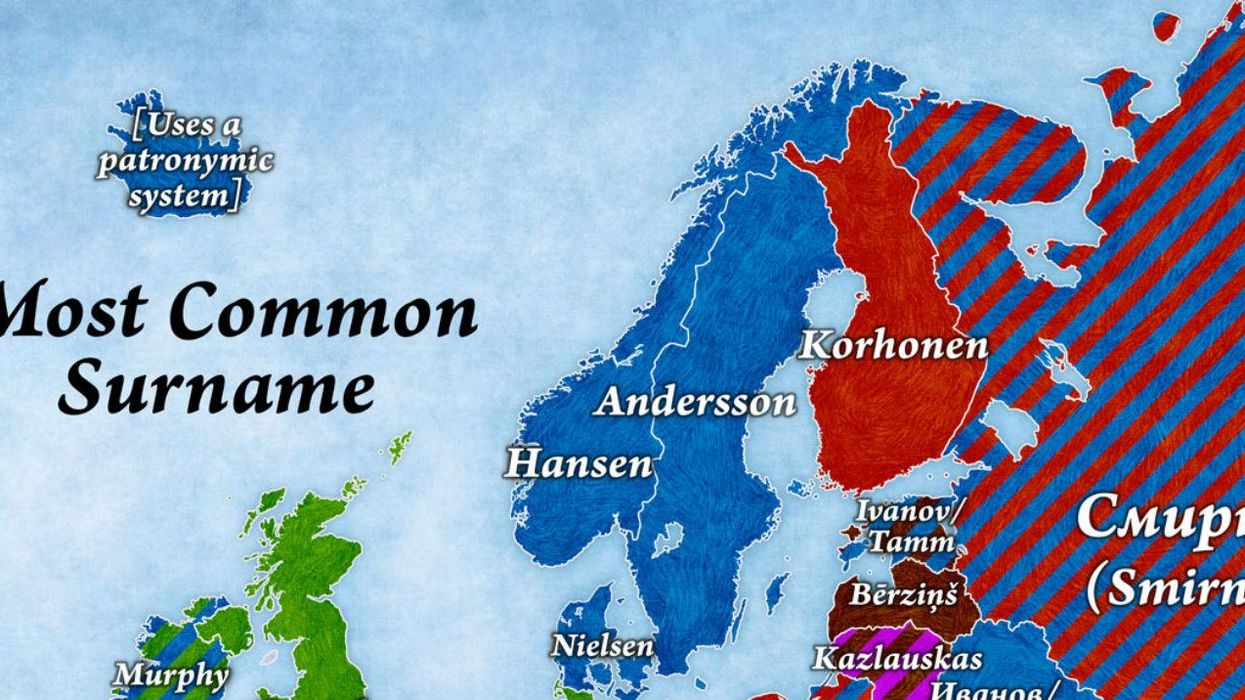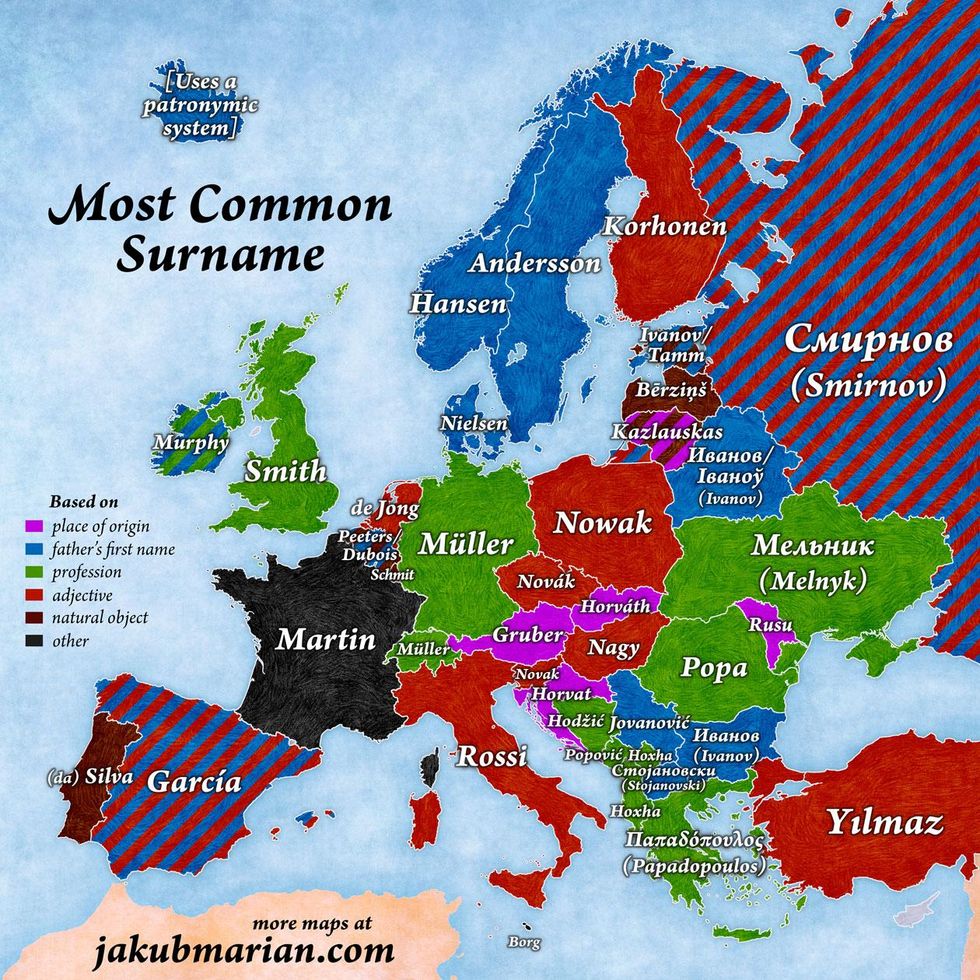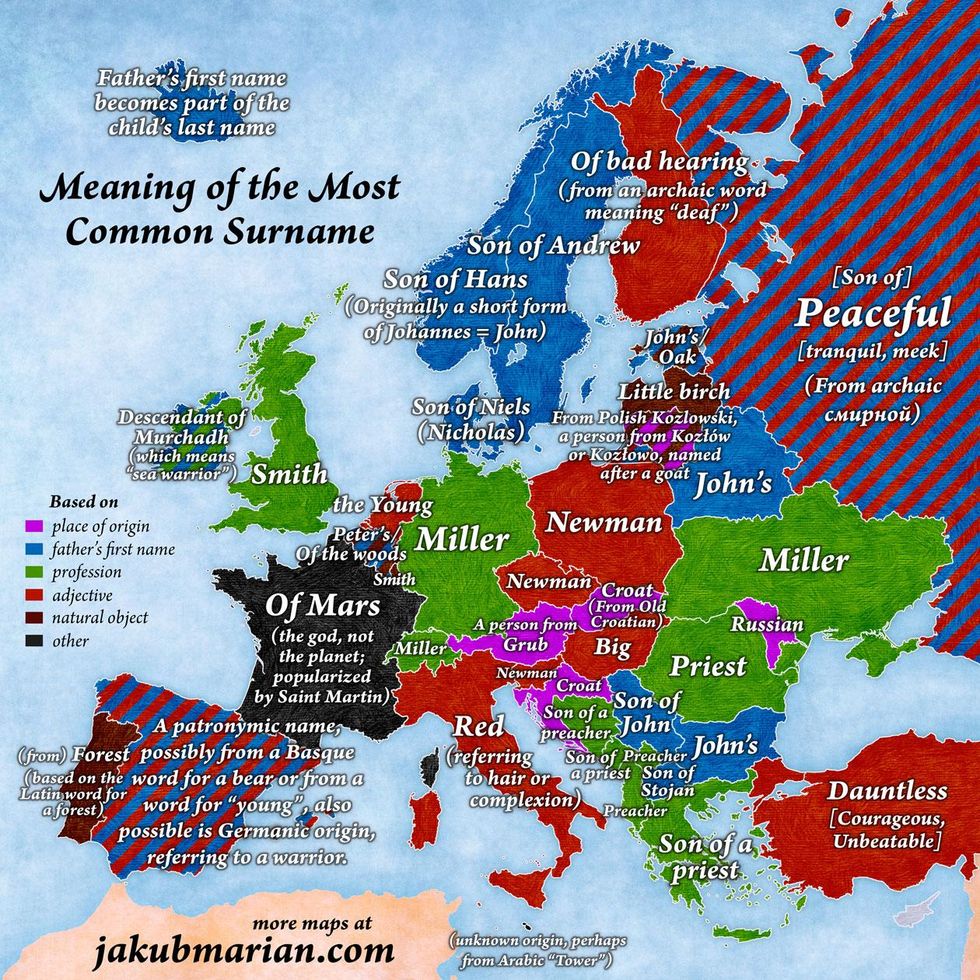News
Joe Vesey-Byrne
Aug 03, 2016

Picture: Jakubmarian.com
A linguist has produced a map of the most common surnames to be found in each European country.
Jakub Marian has posted a new update to his map on his educational blog.
It also showed the meanings of names, or what each was based on. For instance, 'Smith' in the United Kingdom is based on the traditional profession of Blacksmith.
Marian also produced a map that delves further into the meanings behind the names.
An Honourable mention must go to the Austrian name Gruber, which Marian translates as 'A person from Grub'. This is more to do with soil and dirt than food.
The top surname in Turkey Yılmaz is also worth a mention because it means 'Dauntless', which is certainly the best European name that could also be one of the groups from the Hunger GamesDivergent series.
Portugal and Latvia are the only two countries where the most common name is derived from nature, and interestingly both names relate to trees. The Portuguese de Silva meams 'from forest' and Bērziņš means 'little birch'.
The most popular name in the Scandinavian countries all involve relationships with fathers, either using 'Son of' names or in the case of Iceland, the child's surname is taken from the Father's given name.
The patronymic system, still used in Iceland, was once much more common in Europe, for instance many Welsh surnames resulted from Anglicization of Welsh after the Act of Union (1536). In Russia, patronymics continue to be important, and are used on all official documents.
More: The British stereotype map of Europe (according to Google)
More: A map of the world according to what languages we want to learn
Top 100
The Conversation (0)















